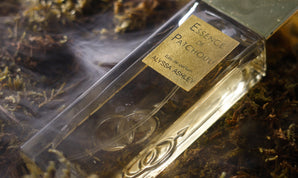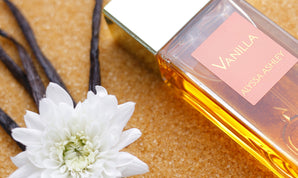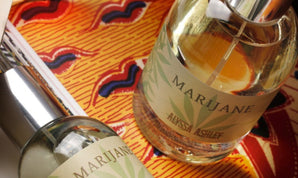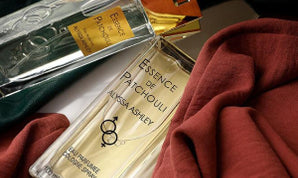There are perfumes as cool as the flesh of children, sweet as oboes, green as meadows, and others are corrupted, and rich, triumphant , with power to expand into infinity, like amber and incense, musk,benzoin, that sing the ecstasy of the soul and senses. Cit.Charles Baudelaire
Smell: the most primitive of all five senses
A study by Rockefeller University in New York has proved that people can remember 35% of what they smell, compared to 5% of what they see , 2% of what they hear and 1% of what they touch.
There are studies on intrauterine life that exalt the mother -baby relationship also through the sense of smell. It assures the continuity for the foetus in between the inside and the outside of the womb. Once he knows the odour of his mother, the new born will be guided toward the mother's breast.
It's common knowledge that the olfactory system catalogs all the odorous molecules it gets in touch with, allowing humans to recognise what we like from what could represent a danger. This mechanism looks unconscious but it can influence our sentimental preferences and daily behaviour .
A highly interesting aspect ( put in light by a research of University of Salento, Puglia), is the bond in between smell and emotional experience. We know that odours stimulate sentimental status; in fact, the olfactory system input, unlike other sensory levels, is only partially channeled into the thalamus. The amygdala and the hippocampus receive the input independently from the thalamus itself. This makes the smell more instinctive and spontaneous than the other senses: through it, our brain labels, in fractions of second,every smell according to the emotions that it provokes. Therefore odours evoke affective status before entering the
consciousness. The sense of smell involves mnemonic processes either semantic or episodic, which means that smelling we identify, memorise places , people and emotions; we capture the essence of things and we recognise them without seeing them.
Thanks to the episodic memory we can archive moments; on the other hand with the olfactory memory we memorise a particular smell or scent, with all its physical and emotional characteristics.
In fact, it does exist within ourselves the skill to recall very clearly a past experience,when we get in touch with a specific smell. This is because the smell is the sense that impacts the most our subconscious. This is the reason why memories deriving from a smell are immediate and clear.
The smell culture
Aspects such as education and culture can condition the cataloging of smells. Who lives in warm climate will privilege "stronger" smells, since high temperature exalts less volatile notes, making weak the lightest notes such as the citrusy ones. On the other hand, who lives in a low temperature climate ,hardly perceives the base notes. Another very interesting study by Professor Fontanini of Neurobiology and Behaviour department of New York University, says that : " there is a database of words to describe odours". ( Atlas of Odor Character Profile) " One of his analysis reveals the importance of hedonic value in the sense of
smell". The fact that smells and perfumes can be bad or good has no parallelism with the sense of sight. The colour green for example is neither good or bad. Whereas the sewage smell is disgusting versus the delicious smell of freshly baked bread.
Give emotional value to odours makes us believe that we are strongly attached to our survival and to the history of our species.
What perfume should i wear?
We also wonder if perfumes could show us some personality traits. The wild musk could recall the manhood, not only in a man. A sweet perfume could
remind us of feminine aspects which come from a " primitive " scent of mothers. Perfume has also an impact on our self esteem and optimism: the perceived scent increases our sense of well being which virtuously impacts the relationship with our self and consequently on our self esteem .
This way the odorous wake satisfies body and mind. The sense of smell has the great power of join together human body and mind transforming a physical sensation into a complex emotional and psychological experience .









